Electrical Safety – Discussion with an RV Park Electrician
What are some safety rules when using RV park electricity?
- Check the pedestal receptacle for damage before plugging into shore power
- Check the pedestal for damage or poor wiring
- Check all load systems are off in your RV before plugging into park power
- Check circuit breakers are off before plugging in to a power source
- Use a properly sized Surge Protector between shore power and your RV
The other day I was at an RV park near Jasper National Park, and a park employee came over to me and told me they were going to have to cut power for a little bit to fix a problem on a power pedestal that was on my row. A bit later I was outside cleaning up the RV, and I could hear the electrician at the power pedestal talking to the park employee and telling him that he was surprised that the power pole did not damage someone’s RV. The electrician sounded like he knew what he was doing, so I decided I would go have a chat with him and get some insight from his perspective.
RV Parks - Electrical Safety At The Park Pedestal
I introduced myself and had some small talk, and then I asked him what are the biggest issues he sees with RV park power. The first thing he told me was that installations in RV parks are usually substandard. He said that it is not uncommon to see parks with undersized cabling. This type of issue can cause low voltage issues to the RV and heat issues on the cabling. He also said that a lot of installs will have reverse polarity issues; this is where the neutral and hot line are reversed. He said that there are a lot of finicky electronic components that do not like reverse polarity, and even if you can operate the RV with reverse polarity conditions, it can be dangerous.
The more we talked, the more he just kept referring back to poor installations. I have heard this many times, but this was a nice reminder that it does not matter how nice the RV park looks; if the electrical install was done poorly, or in a way to save money, then this can have ill effects on your RV.
We kept talking, and he said that another common problem is that RVers will pull out of their RV spot while still connected to the power pedestal. He said that this happens more than you might think, and in most cases these incidents are not reported to the front office. Even if the unplugging mishap was reported, it is unlikely that the park would spend the money to have that pedestal thoroughly inspected. Also, even if the power pedestal was not pulled over, it is likely that the receptacle was damaged in some way. In these cases, and in cases where RVers are unplugging their RV from power by pulling on the cable instead of pulling from the plug head, you can see how the distress on the female plug can be a problem.
Electrical Outlet Inspections
Inside the female plug, in each slot, are a pair of brass fingers. These fingers clamp on the male RV plug blades. The clearance between these fingers should be very small and almost touching. If there is a large gap, then there will not be a tight connection which causes sparks and arching. This results in heat and melts the plugs. If you really want to protect against this, then RVers should do a visual inspection with a flashlight before plugging in to outlets. If a gap larger than a matchbook cover is identified, it is best not to plug you RV in and park management should be notified. Remember, this distress can cause a loose connection or even a completely open wire connection.
When you lose connection with a neutral wire, power wire, or even a ground connection, bad (and expensive) things can happen! For example, If you are in a 50 Amp RV, then you have two 120 volt lines that share a neutral, and if you lose that neutral then the two hot lines can come together and create 240 volts within your RV, which of course can cause instant damage to your electronic components.
Being an RVer is a daily learning experience and if we are going to protect our RVs then sometimes we have to go the extra mile in our inspections of the power pedestal.
Electrical Power Loads When Connecting to Shore Power
Another issue that this electrician brought up to me was RVers plugging into the pedestal while the RV is under full load. This means that you have several AC units in the on position, maybe the batteries are drained and they need bulk charging, or maybe you have a dryer and it was left on - basically anything that is pulling a large amount of amperage. He said that pulling these full loads all at once can create heat issues and can contribute to burning or pitting on your power plug. The safer method is to make sure all your power hog components inside your RV are turned off when you plug into the power pedestal, and then turn each unit on individually.
There are a lot of lessons that can be learned from a good electrician that is familiar with RV park power. I will tell you that he looked at my Surge Guard unit and gave me the thumbs up. He said that having a proper electrical protection system is the best thing an RVer can do for their RV.
All the issues that he referred to as far as reverse polarity, open neutral, low voltage, and more can all be protected from by having a Surge Guard electrical protection unit. I use the Surge Guard 34951 and it is peace of mind knowing that I am protected from the faults of an RV park.
Check out the Surge Guard units at TechnoRV for your best RV electrical protection.




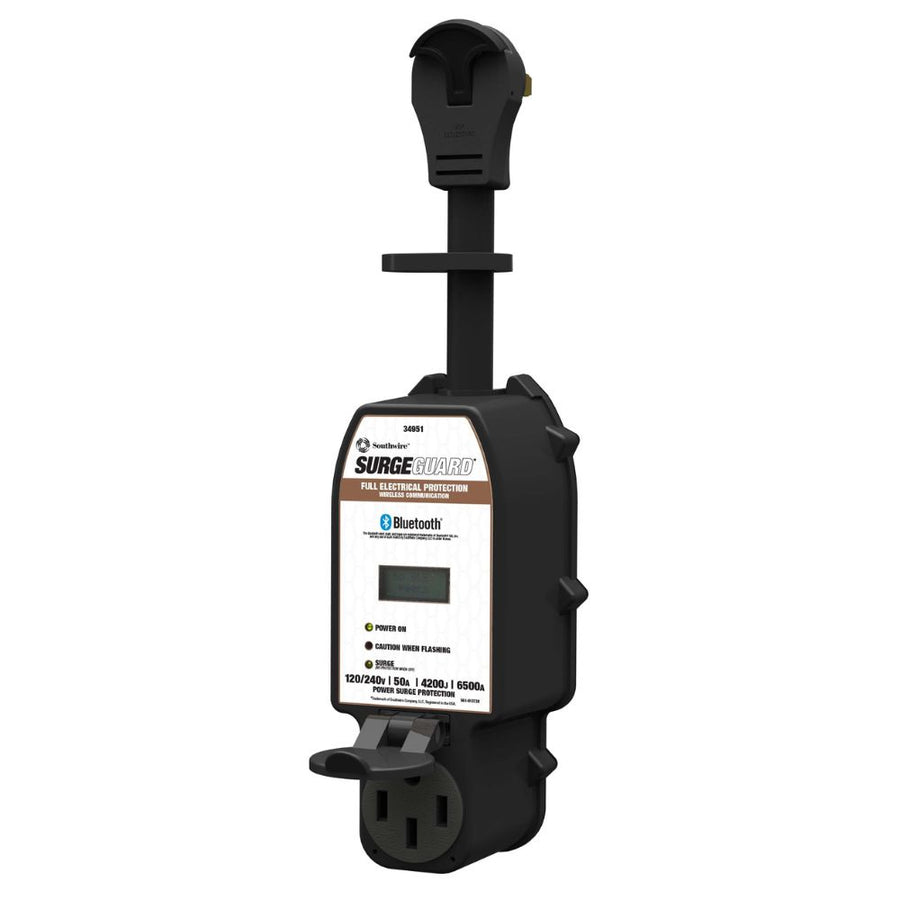

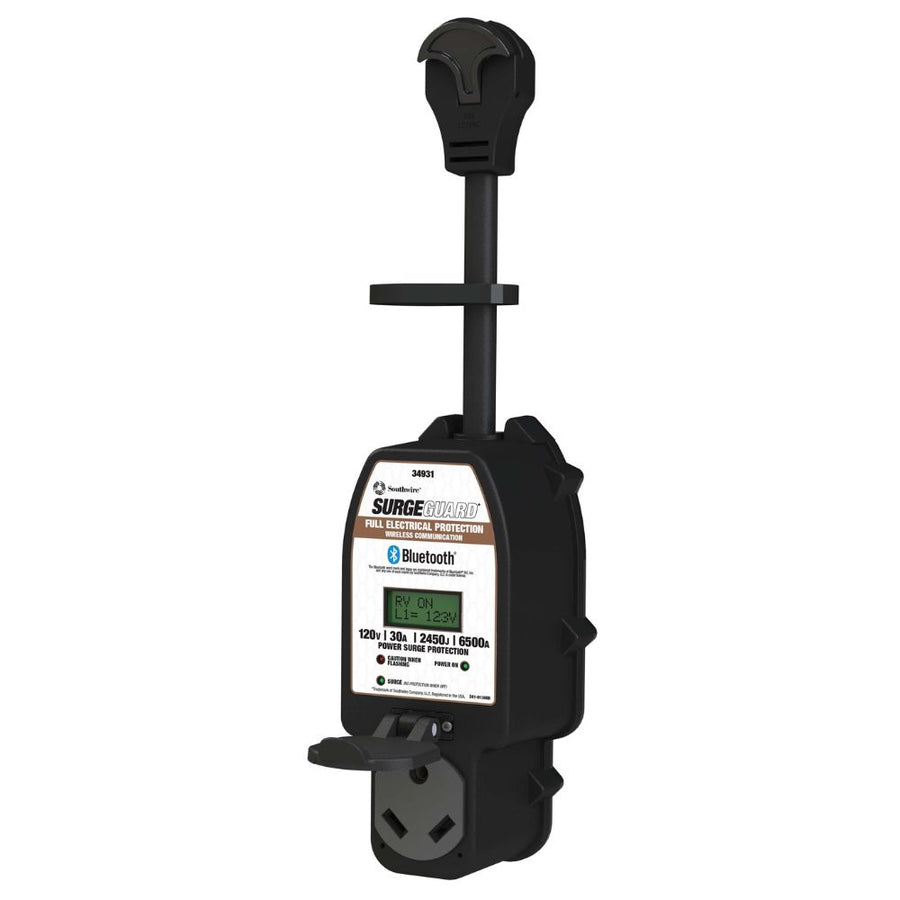

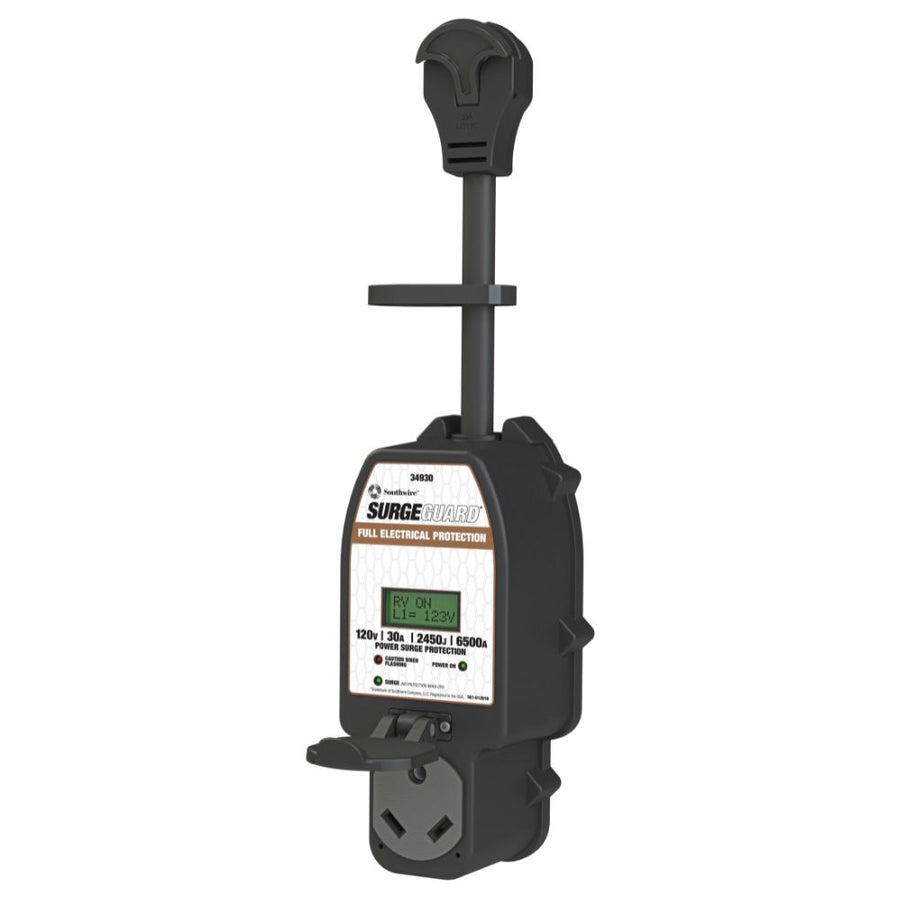

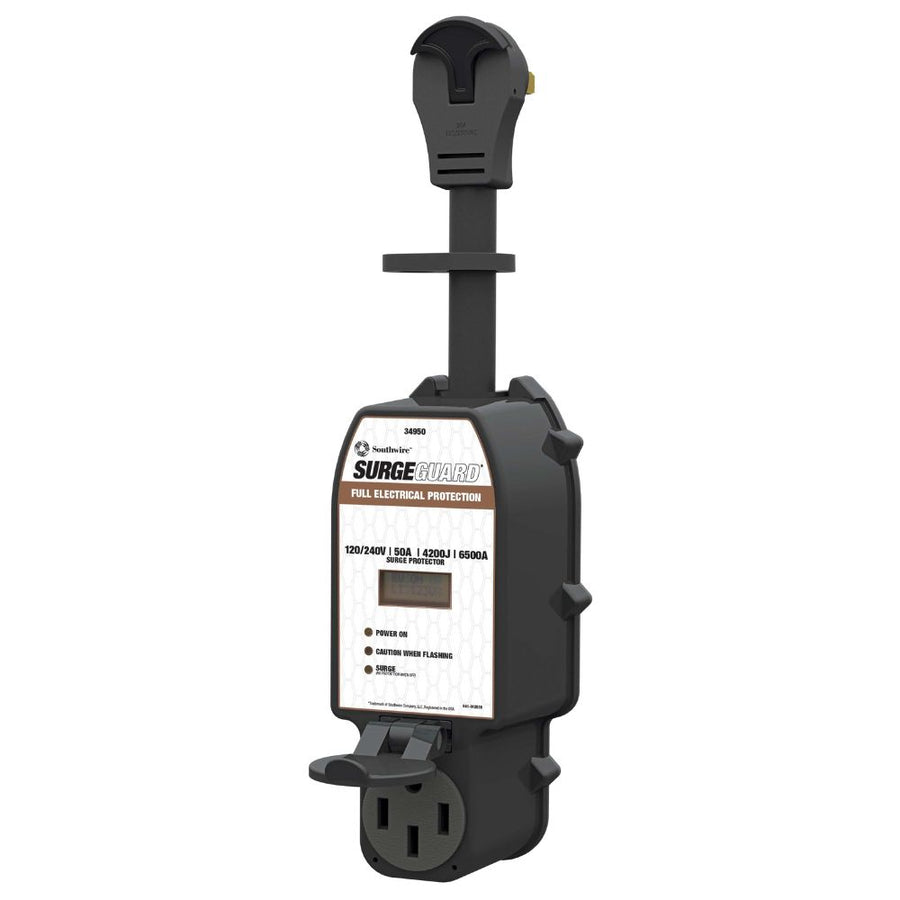


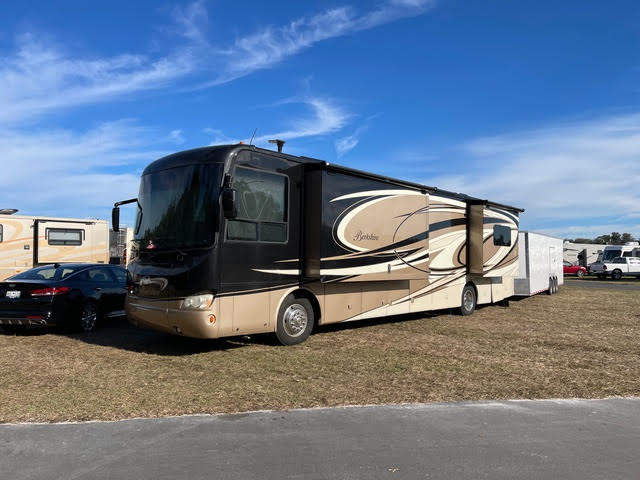

Leave a comment